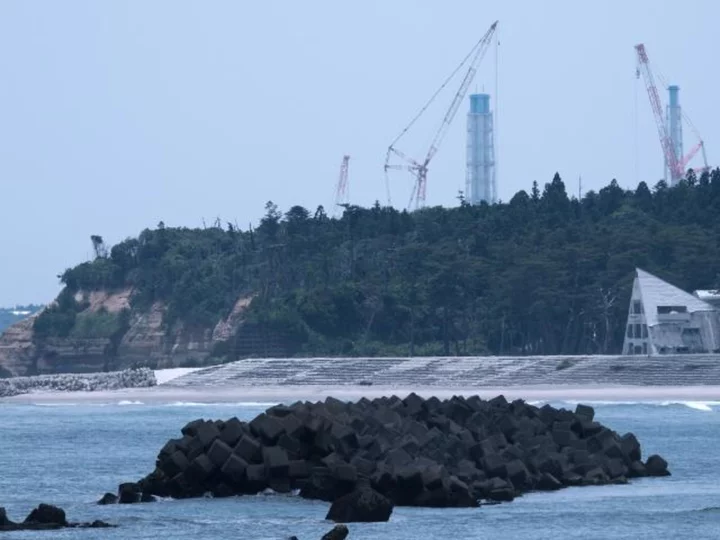Hong Kong, one of the world's biggest buyers of Japanese fish, says it will ban seafood imports from 10 prefectures in the country if Tokyo presses ahead with its plan to release treated radioactive water from Fukushima into the sea.
Tse Chin-wan, the city's secretary for environment and ecology, said Wednesday the ban would include all "live, frozen, refrigerated and dried products or those preserved in other ways," as well as sea salt and seaweed.
Japanese food is hugely popular in Hong Kong, which has more than 2,000 Japanese restaurants.
Hong Kong bought 75.5 billion yen ($536 million) worth of seafood from Japan in 2022, making it Japan's second biggest market for fishery exports behind mainland China, according to the Japanese government.
The move comes less than a week after Beijing announced a similar ban on Japanese seafood exports to mainland China, citing concerns over health and safety.
Several of Japan's neighbors, including South Korea, have expressed concerns about the safety of its food exports despite assurance from Tokyo and the International Atomic Energy Agency (IAEAA) that releasing treated radioactive waste water will have a negligible impact.
"Let's not forget: If they end up making some mistakes or errors, this highly radioactive water could bring an enormous impact to food safety once it enters the ecosphere of the ocean," Tse told a news briefing Wednesday.
The IAEA has insisted the planned release is safe, meets international standards and matches what nuclear plants do around the world, including those in the United States. The treated contaminated water will be highly diluted and released gradually into the Pacific Ocean over many years.
The move is necessary to finally decommission the Fukushima nuclear plant, which melted down in 2011 following a devastating earthquake and tsunami. The government has said the wastewater release will begin this summer, though it has not specified a date.
Seafood ban
A Hong Kong government spokesman said that having studied the IAEA report, officials had concluded there is "no guarantee" the purification system can operate continuously and effectively in the long term nor that Japan's plan would not pose potential risks to food safety and marine ecology.
The 10 prefectures facing a seafood ban are Tokyo, Fukushima, Chiba, Tochigi, Ibaraki, Gumma, Miyagi, Niigata, Nagano and Saitama, he said.
Hong Kong's existing restrictions on fruit, dairy products and meat from Fukushima and four neighboring prefectures remain in place.
Tse did not say how long the potential ban could last.
"Time will tell," he said.
Tse and other Hong Kong officials had met with the Japanese consul general in the city shortly before announcing the planned ban.
During the meeting, the Japanese side said it had "strongly requested that further regulatory measures should not be taken," urging Hong Kong officials to respond "based on scientific facts."
The likely imminent release of the treated radioactive wastewater has also prompted South Korean shoppers to hoard salt and seafood in recent weeks.
Earlier this month, IAEA chief Rafael Grossi visited Japan and presented the UN nuclear watchdog's final report to Japanese Prime Minister Fumio Kishida.
In the report, Grossi said discharging treated water into the sea would have a "negligible radiological impact on people and the environment."
Outside a sushi restaurant in Hong Kong's bustling shopping district of Causeway Bay, a crowd of customers formed Thursday lunch time.
Diner Sandy Yu said she spends up to HK$3,000 ($385) per month on sushi and sashimi and feared the ban could push up prices. "We can still afford our Japanese meals if the price hike stays within 20% to 30%," she said.
Another diner, Timothy Lo, said he would travel to Japan to get his seafood fix. "The border is open now and the yen is cheap," he said.

